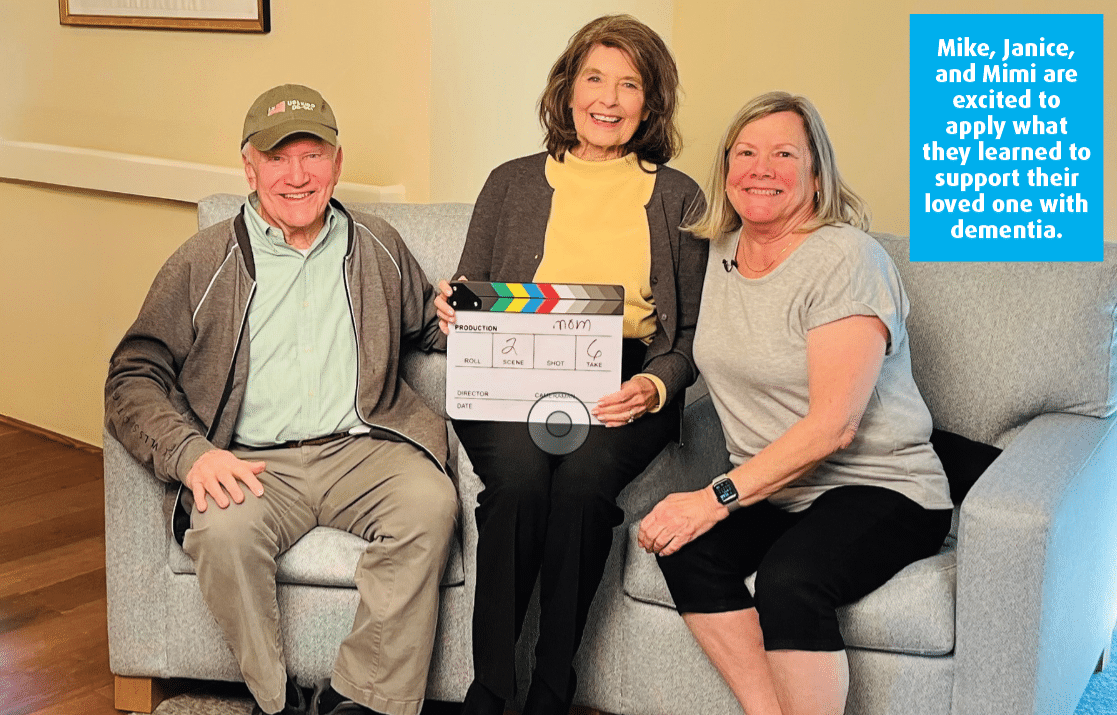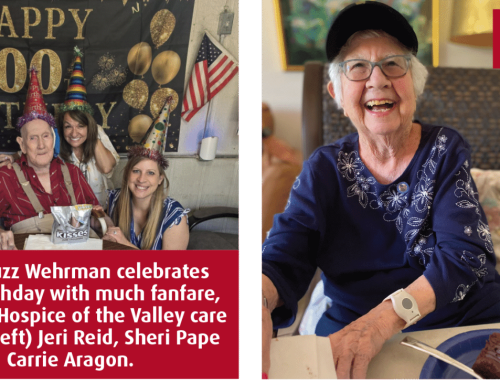By Lin Sue Flood
Photo courtesy of Hospice of the Valley
Family members caring for a loved one living with dementia strive to provide compassionate care but are often frustrated by challenging behaviors. “What worked yesterday often doesn’t work today,” says Dr. Gillian Hamilton, medical director of the Dementia Care and Education Campus. “Even professional caregivers get discouraged and wonder if there is a better way.”
In fact, there is.
The Campus, located in the heart of Arcadia, offers an array of community resources at no charge to families — from in-person support groups that welcome both caregivers and their persons with dementia to online offerings for people who prefer receiving support and dementia education via Zoom.
One popular resource is a series of powerful videos that help caregivers deal with challenging situations. Funded by a federal grant, Hospice of the Valley’s Dementia Program created scenarios that demonstrate how using a personalized approach to caregiving helps preserve dignity, convey a sense of safety, and enhance quality of life. Volunteer actors play the part of caregiver and the people living with dementia. The videos tackle a host of problematic situations, including hygiene, hallucinations, and “wanting to go home.”
Mealtimes can also be contentious. Caregivers commonly speak and move too quickly, rushing the person with dementia. The videos illustrate how taking the time to build a connection and using a slower pace can relax the person with dementia. The caregiver also uses gestures to demonstrate eating and assesses the level of skill in using utensils. And finally, the video show how the caregiver places her hand under the person’s hand to gently guide as he eats, but giving the impression that he is feeding himself. Throughout the entire meal, she provides positive feedback.
Another video addresses how to approach someone with mild dementia. When the caregiver enters the room abruptly and rushes “Janice” to quickly stand up and go to the dining room, Janice is rattled and resists. The situation continues to escalate as the caregiver tries to force cooperation.
In the personalized approach, the caregiver stoops to eye level, introduces herself and uses sincere compliments to establish rapport (“I like that color on you, it brings out your eyes”). The caregiver taps into personal preferences (“they have dessert, I know you like that”) and offers her a choice (“do you want cake or pie”). When she calmly extends a helping hand, Janice agrees to follow.
In real life, Janice is caring for her husband of 65 years, with support from his siblings, who also volunteered as actors. “We all wanted to be involved with this project because we are living it firsthand,” she shared. “It’s nice to know this will help other families who are overwhelmed. We learned so much and they will too.”
Playing the part of caregiver is Rebekah Wilson, a former Hospice of the Valley social worker who specializes in dementia care. “I created these training modules to change the way we think about people living with dementia. Why focus on what they cannot do? Instead, let’s enhance life in this moment and celebrate who they are now.”
Learn more: Find these helpful videos and many other support resources offered by Hospice of the Valley’s Dementia Care and Education Campus at dementiacampus.org or call 602-767-8300.





